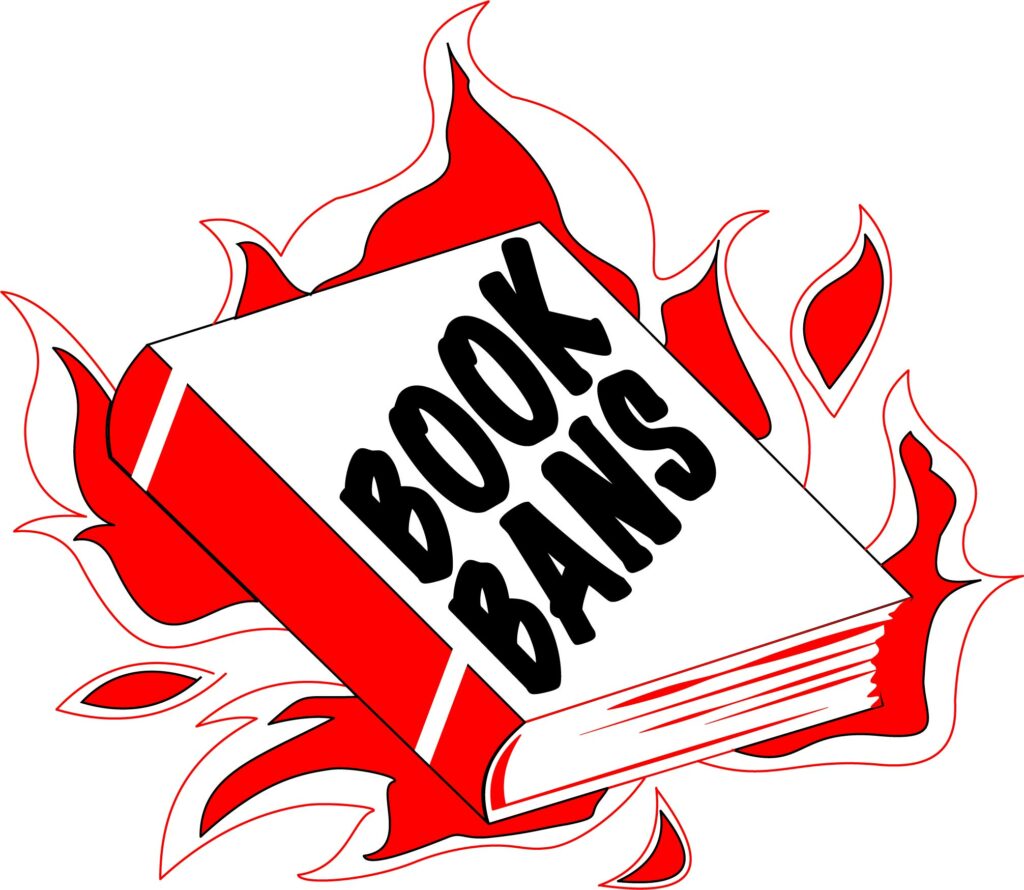By removing hundreds of books from school curricula, Texas politicians are writing off thousands of students
Anjali Vishwanath
Just as you can understand a person based on what they have read, you can understand a leader based on what they won’t let people read. You can see their fears, their prejudices and principles.
When Texas Representative Matt Krause presented a list of 850 books to the Texas Education Agency (TEA), requesting that they be banned from school libraries, he targeted several books about the 2020 racial justice protests, sexuality, and gender. As a queer, Indian-American girl, I felt targeted by these bans.

“I think it’s obviously targeting a specific community and it’s obviously in tandem with other legislation that the administration is putting out,” Coppell High School senior Trisha Atluri said. “The purpose of public education is that we all have access to it. It’s how kids form their own conceptions of what’s right and wrong and the world around them and people they don’t know. [Banning books] really limits the exposure to those communities.”
In his letter to the TEA, Krause justified banning the books on because he felt they could cause some students stress or discomfort.
Given that his list largely focuses on books about non-white and non-straight people, it seems Krause is isn’t concerned for minority students reading about the marginalization and discrimination their communties have faced, who may be for the first time ever seeing themselves represented by protagonists in literature. Rather, it’s for students who may resemble the antagonists.
In my experience, very few people see themselves in villains, while many find comfort in looking like the heroes. As an Indian-American girl, I still remember the first book I read in school that featured an Indian female protagonist, Padma Venkatraman’s A Time to Dance. I remember how much I smiled when she called her grandmother the same thing I called mine, or when she danced the same form of Indian classical dance that I studied.
“Reading diverse books is so important,” Rachel McKay, another CHS senior, said. “As a cis white person in Texas, [reading] is a great way to learn about other communities. And it’s important to see experiences of your own reflected in books.”
Indeed, the list was more than comprehensive; in some cases, it was repetitive: several books, such as Cat Clark’s The Pants Project and Anastasia Higginbotham’s Not My Idea, can be found on the list twice. Also found on the list, oddly, are all five volumes of the Gale Encyclopedia of Medicine.
Clearly, there were some clerical errors made in what appears to have been the rather haphazard process of assembling this list. Between the irregularities, there are some chilling takeaways.
Danika Ellis of Bookriot broke down the list by topic in November, observing that more than half of the books are in some way about the LGBTQ+ community. This hits differently after Governor Greg Abbott’s recent bill targeting young transgender Texans and reinforced restrictions on instruction of African-American history and the history of slavery in this country.
The reality of Krause’s list is that it almost exclusively targets minority communities. These are novels featuring LGBTQ+ heroes, history books and memoirs without redactions over the ugly bits. These are books about real communities, real people and real stories.
These are books like Stamped: Racism, Antiracism, and You, a resource many people turned to after the fatal arrest of George Floyd in 2020 at the rise of the Black Lives Matter movement. These are books in our Library and Community Commons, available for our students.
Also listed is The 57 Bus, a summer reading option for students at my school taking AP English III Language and Composition.
“That book introduced terms like [agender] to a lot of people in my class,” Atluri said. “And taking books like that and making them less accessible makes it harder for queer people and people of color to read stories about people like them. Especially since most general media is about white people, straight people.”
My hope is that our public schools and libraries will defend our right to exist in books rather than allow politicians to further their agendas at the expense of our education. My hope is that people realize that diverse books aren’t a threat, they’re a rare opportunity to gain insight into someone else’s experiences.
“The library is a place for you to make a choice of books that you want to read,” CHS librarian Trisha Goins said. “And not every book is going to be for every reader, but we want to allow access. Libraries should be a safe place for everyone and it is a place to come to seek answers.”
It is impossible to tell the human story without covering the painful parts; to do otherwise would be to turn your backs on the hundreds of thousands of people oppressed by their fellow man for uncontrollable circumstances of their birth, for daring to look or sound or believe differently than those around them. To do otherwise would be to lie, blatantly and knowingly, to stagnate history. We cannot advance without first learning what we have done wrong. Telling historically silenced stories is critically important as we try to create a more tolerant America.
I write this as a first-generation American, as a young, queer Indian-American girl. Please don’t let my story, and the stories of people who look or love like I do, get silenced. I grew up in libraries. Don’t let our leaders force me out.



